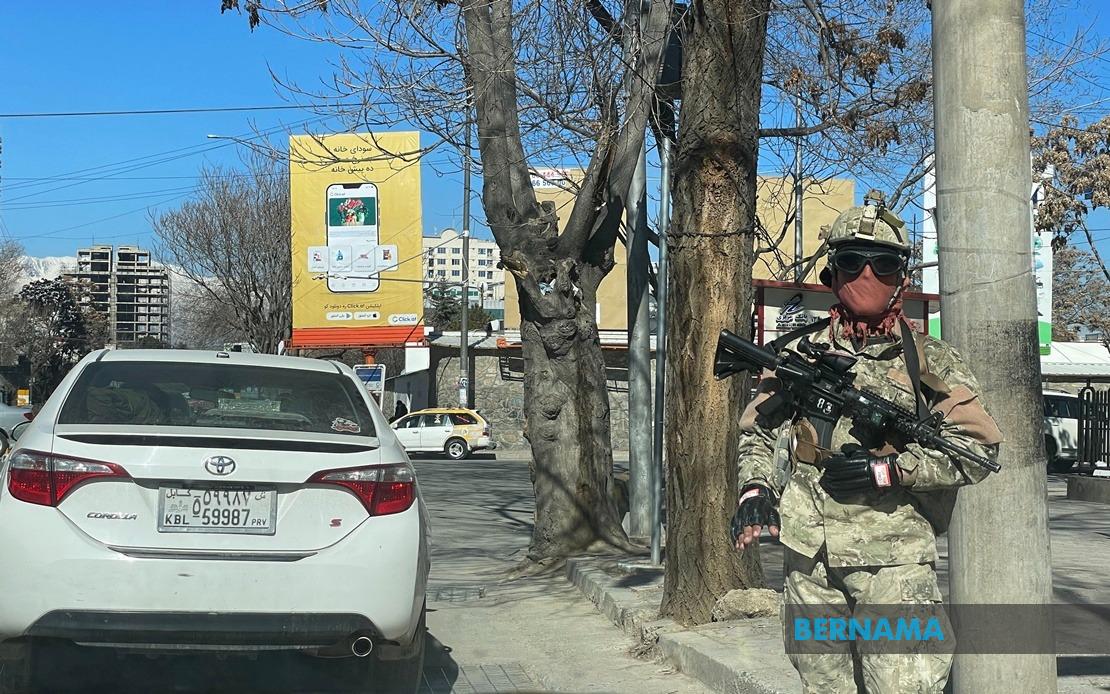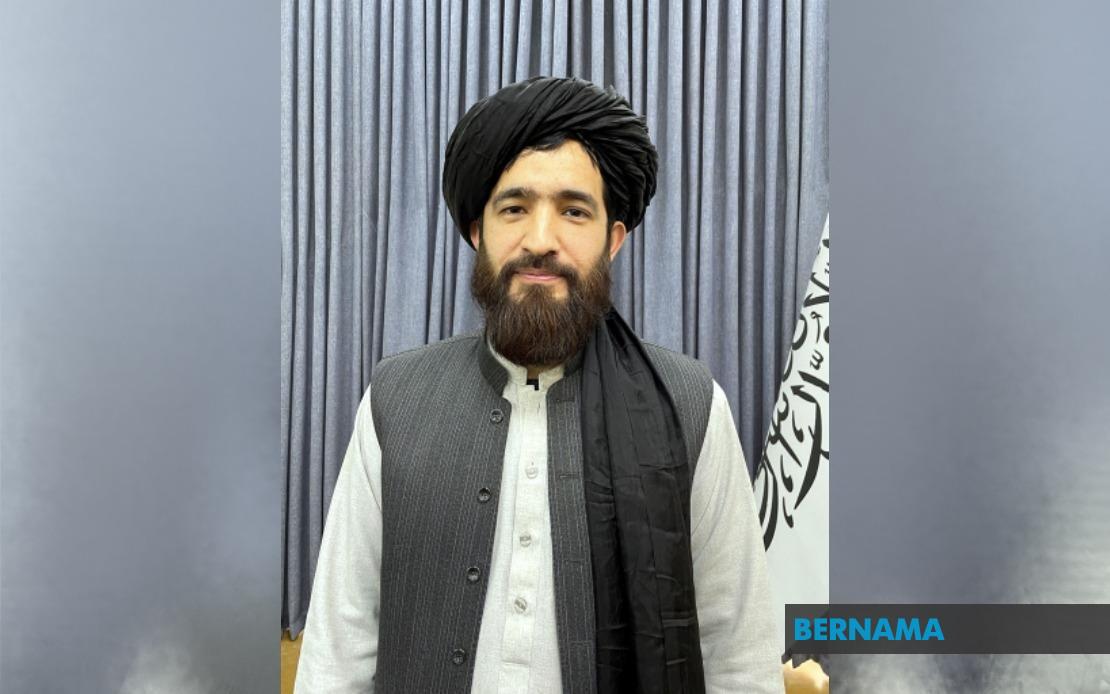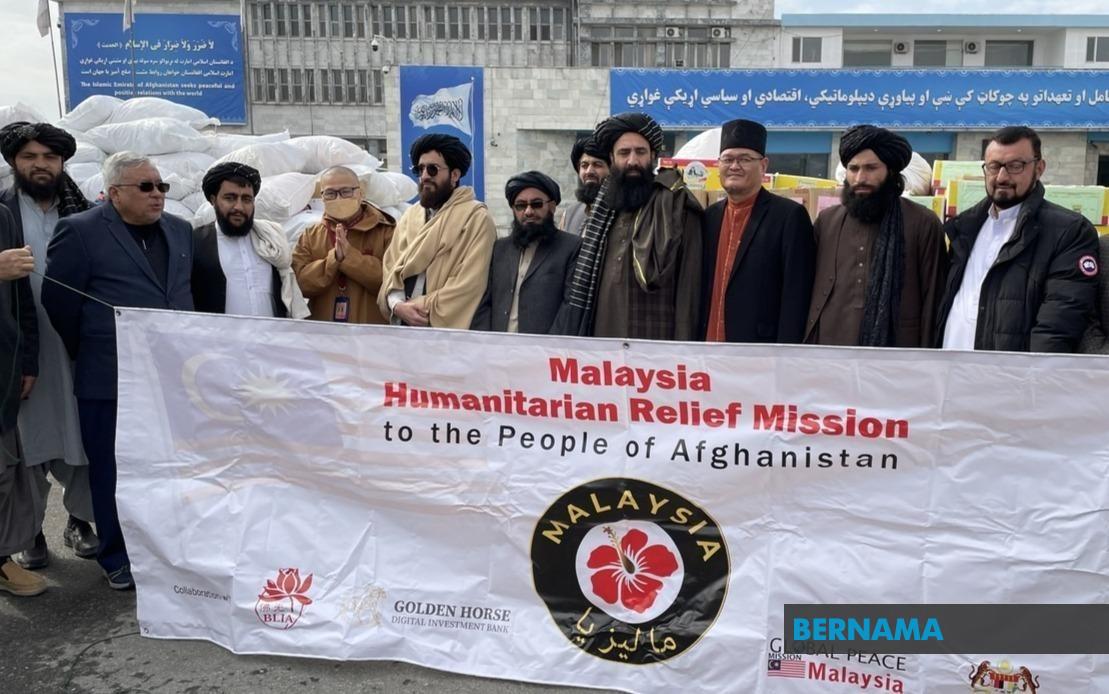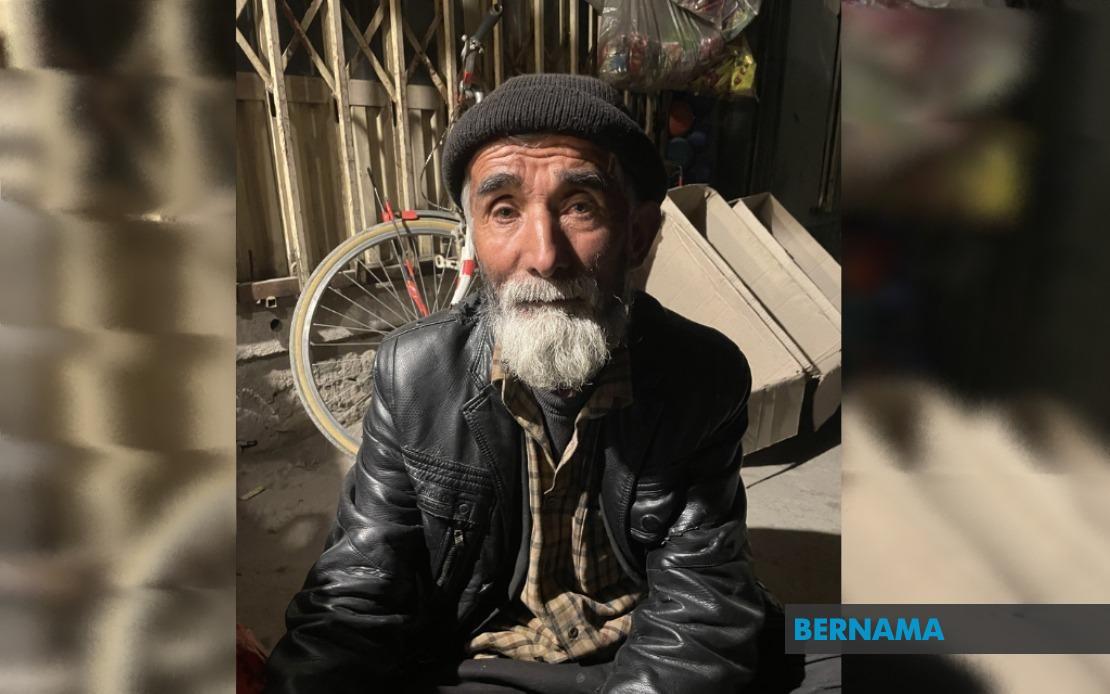K
ABUL, March 7 (Bernama) – Along the streets of Kabul around sunset, Afghan women clad in traditional burqa and elderly men sit quietly in front of nameless bakeries, barely moving as the city bustles around them.
The people are waiting outside the bakeries hoping kind patrons with extra cash during the dinner rush will buy them a loaf or two of Afghan flatbread, known as naan-e-Afghani. A tradition among poor people in the city for years, the number of people waiting outside bakeries has become a gauge for the country’s worsening humanitarian crisis.
As dusk falls, 35-year-old widow Karina waits quietly under the window of a bakery, hoping the woman at the window buying bread would donate a few loaves. The woman leaves without donating anything, and Karina sits back again, disappointed but not defeated.
She told Bernama that she has been coming to the bakery since the Taliban took over and the family she worked for fled the country. She sees the bakery as her lifeline.
“I get three or four pieces of bread sometimes. Once, I got five pieces,” she said, her eyes barely visible behind the traditional blue burqa covering her from head to toe. Next to her sat her six-year-old son. Her eldest daughter, 15, is at home taking care of her other four children, the youngest being one and a half years old.
Karina said she was not getting aid but did not specify why. When asked if the amount of bread she usually got was enough, she said it would have to do.

KABUL (Afghanistan), 7 Mac -- Pengusaha bakeri, Shafiqullah berkata perniagaannya terjejas teruk sejak Taliban mengambil alih kerajaan pada Ogos tahun lepas susulan pengunduran Amerika Syarikat (AS) dan kerajaan pimpinan Ashraf Ghani tumbang, jumlah pelanggannya merosot.
Katanya, jika sebelum ini dia mampu menjual hingga 1,600 keping roti sehari pada harga AF10 (RM0.46) sekeping, sekarang dia bertuah kalau dapat menjual 900 keping.
--fotoBERNAMA (2022) HAK CIPTA TERPELIHARA
“Before the Taliban, the beggars were four or five per day. Now we get 25 to 30 per day,” said Shafiqullah, a baker at the bakery on 10th Street, through an interpreter. Like many Afghans, he goes by only one name.
He too is feeling the pinch. Since the Taliban took over in August last year, following the withdrawal of the US and the collapse of the Ashraf Ghani government, the number of customers has fallen. He told Bernama he used to sell 1,600 pieces of bread daily, each priced at AF10 (RM0.46). Now he is lucky if he can sell 900.
Across Kabul, bakers say the same thing: fewer can afford to buy bread due to rampant unemployment and unpaid wages. When the US left, so did the money. Afghanistan has been under US and UN sanctions following the return of the Taliban, whose rule the international community considers illegitimate.
On top of that, prices of raw materials are at a 10-year high and climbing, no thanks to an ongoing drought and supply chain problems due to COVID-19. The UN Food and Agriculture Organisation reported that Afghanistan needs about six million metric tonnes of wheat each year, but not enough is coming through.
“There was the pandemic, corruption (in the previous government), the drought. Then at No. 4, there is the change of government – all are connected,” said Dr Muhammad Amin, an Afghan and former International Islamic University Malaysia lecturer who helps connect Malaysian NGOs with their counterparts in Afghanistan.

And now, Russia’s invasion of Ukraine and the world’s subsequent isolation of Russia may have made the situation even worse. The two countries account for 29 percent of the world’s wheat exports.
This latest development is yet another whammy on an already strained situation, with 95 percent of Afghanistan’s population of 39 million or so not having enough to eat, and 8.5 million at the brink of starvation. Many Afghans are barely making enough to make ends meet as it is, some earning about AF100, or RM4.63, a day.
During an aid distribution event in Kabul recently, Chair of Global Peace Mission Malaysia (GPM) Datuk Ahmad Azam Ab Rahman told Bernama the US departure was the final nail in the coffin, causing families who managed well enough prior to August 2021 to require aid now.
“They’ve suddenly become poor because they are no longer getting paid. They’re suddenly poor because they have no job. Their factories closed. Their hotels shut down. So we have to take notice of this new reality,” he said.
BLAME GAME
The Taliban describes the humanitarian crisis as a “man-made disaster”, blaming it on the sanctions in place after the Ashraf Ghani government fell.
“Unfortunately, the world has taken away our right of existence and our right to life, which is the most basic and fundamental right of every human being, through sanctions and through isolation, which has negatively impacted our private sector,” Abdul Qahar Balkhi, spokesperson for the Afghan Foreign Ministry, told Malaysian media on Feb 23.

KABUL, 23 Feb -- Jurucakap Kementerian Luar Afghanistan Abdul Qahar Balkhi ketika berada di Lapangan Terbang Antarabangsa Hamid Karzai untuk menyambut penerbangan khas dari Malaysia, yang membawa hampir lima tan metrik bantuan untuk rakyat Afghanistan, termasuk pakaian musim sejuk, makanan bayi, selimut, susu tepung dan keperluan lain.
Abdul Qahar turut mengucapkan terima kasih kepada rakyat Malaysia dan kumpulan bantuan Malaysia atas sumbangan yang diberikan.
-- fotoBERNAMA (2022) HAK CIPTA TERPELIHARA
He repeated calls for the international community to engage with the Taliban-led government in order to solve the crisis.
The international community has not recognised the Taliban-led government thus far, which means international funds set aside for rebuilding Afghanistan are frozen although there has been some relaxation of restrictions to allow for aid. Neither can they access Afghan government assets held in US accounts.
A few weeks ago, the US announced they were releasing half of the US$7 billion of Afghanistan Central Bank assets for humanitarian purposes, while keeping the other half for a fund for families of victims of the Sept 11 attacks in the US. The move fuelled anger against the superpower, while economists predicted the move would crater the economy.
While aid agencies have managed to stave off the worst of the famine, many still need help. To prevent running afoul of sanctions, international aid agencies are required to provide assistance directly to the people, bypassing the Taliban government. As there is only so much assistance to go around, aid groups have strict criteria that recipients need to fulfill before aid can be distributed to them.

KABUL (Afghanistan), 7 Mac -- Pengerusi Global Peace Mission Malaysia Datuk Ahmad Azam Ab Rahman (dua, kiri) dan Dr. Muhammad Amin (kanan), pengantara yang membantu menghubungkan badan bukan kerajaan (NGO) Malaysia dan Afghanistan, bergambar sempena program agihan bantuan di Kabul baru-baru ini.
Ahmad Azam memberitahu Bernama, pengunduran Amerika Syarikat dari Aghanistan memuktamadkan krisis kemanusiaan di negara itu, menyebabkan keluarga yang sebelum ini mampu menyara diri kini memerlukan bantuan.
--fotoBERNAMA (2022) HAK CIPTA TERPELIHARA
Dr Muhammad Amin said in many cases, aid could not get to those who need it most because they could not satisfy the basic criteria, such as having identification documents.
“There are many left out because they don’t possess the Afghan ID … Some people may not know where to go to get it. We see (needy people) on the street a lot but when I ask some of them why aren’t they being provided for, it’s because they don’t have an ID,” he said, referring to the beggars on the streets of Kabul.
These beggars, usually children and teenagers, would tap on windows of passing cars, begging for money, while others would sit in the middle of the road forcing cars to slow down and hopefully give them alms. And several, usually women with young children and the elderly, wait in front of the bakeries for aid to come to them.
RECOGNITION
Sitting in front of the bakery on the 11th Street bakery is former day labourer Sher Ali. He has been coming to the bakery for about a month after losing his job and failing to find another. At 68, he has four young children and a wife at home to feed. His two older daughters are married but cannot help since their husbands are also unemployed.
“After the Taliban regime, there is no work so I started coming here, hoping someone will give me bread for me to take home,” he said through an interpreter.

KABUL (Afghanistan), 7 Mac -- DEMI KELANGSUNGAN HIDUP ... Sher Ali yang sebelum ini adalah buruh harian terpaksa menunggu di sebuah bakeri yang terletak di 11th Street.
Golongan fakir di Kabul terpaksa menunggu di kedai bakeri jika ada yang sudi memberikan mereka beberapa keping roti pipih Afghan atau naan-e-Afghani, untuk hidangan diri dan keluarga.
Dia menjadi 'pengunjung' tetap bakeri berkenaan sejak sebulan lalu setelah diberhentikan kerja dan gagal mendapat pekerjaan baharu.
Pada usia 68 tahun, warga emas itu perlu menanggung empat anak kecil dan seorang isteri. Dua anak perempuannya yang sudah berumahtangga, tidak dapat membantunya kerana suami masing-masing juga menganggur.
--fotoBERNAMA (2022) HAK CIPTA TERPELIHARA
Both Karina and Sher Ali lost their jobs and both would like to work again to support their families. While some aid agencies realise the importance of providing upskilling and job training, these options may only be available to a lucky few.
Ahmad Azam said the lack of international recognition was what made it difficult for NGOs to fulfill their tasks, as a government-to-government approach would be better to get the necessary assistance to those most in need.
“We should take away this mental block against dealing with the (Taliban) government. It’s better to deal with (them). If it’s just NGO to NGO, that’s why it can be hard to get aid out,” he said, referring to the five tonnes of humanitarian aid Malaysian groups flew in recently on a special flight, which is waiting to be released by the authorities.
The UN is cognisant of this difficulty, with the UN Special Representative Deborah Lyons telling the UN Security Council last Thursday that cooperating on all issues with the Taliban was needed to resolve the economic crisis.
Despite the hardship in Afghanistan, it has not dampened the people’s instinct to care for each other if they could. Bernama saw a man buying dozens of loaves at another bakery, distributing them to the women and the elderly sitting out front, before giving them to children who swarmed him. Instead of beating a hasty retreat, he went back to the window to buy more bread to feed the children.
Naser, 46, who works at the 11th Street bakery, told Bernama that was nothing new, saying bakers would also occasionally give the people waiting outside leftover bread.
“Sometimes people will give (people waiting outside the bakeries) bread, sometimes we give them as well. It’s good to care,” he said as he puts one piece of bread after another into the oven.
-- BERNAMA
Penulis
Nina Muslim
7 March 2022